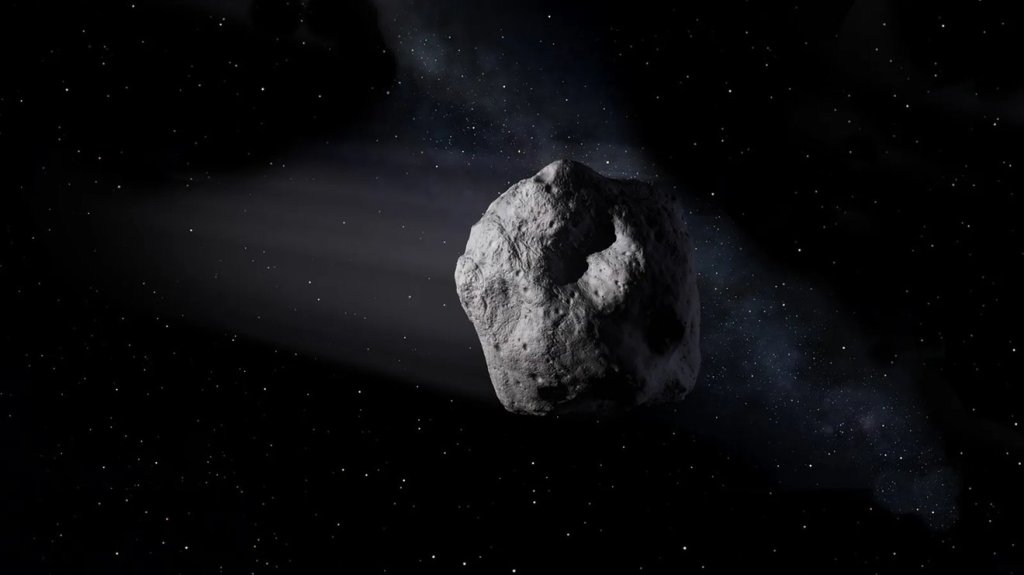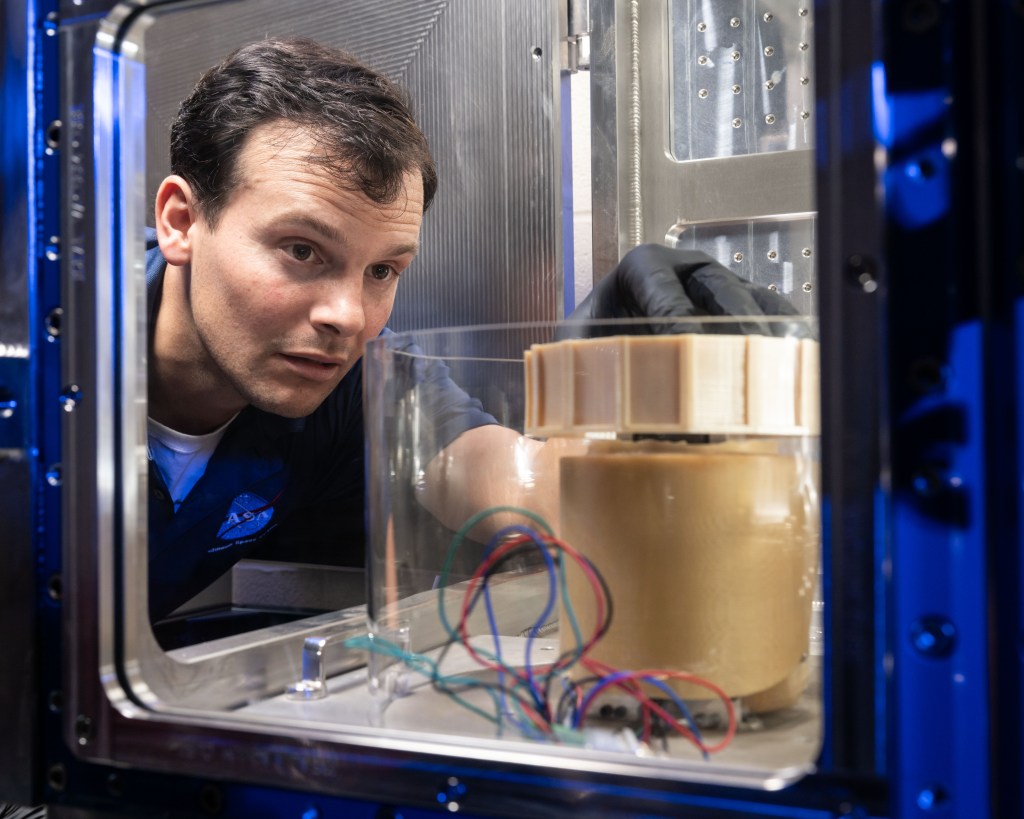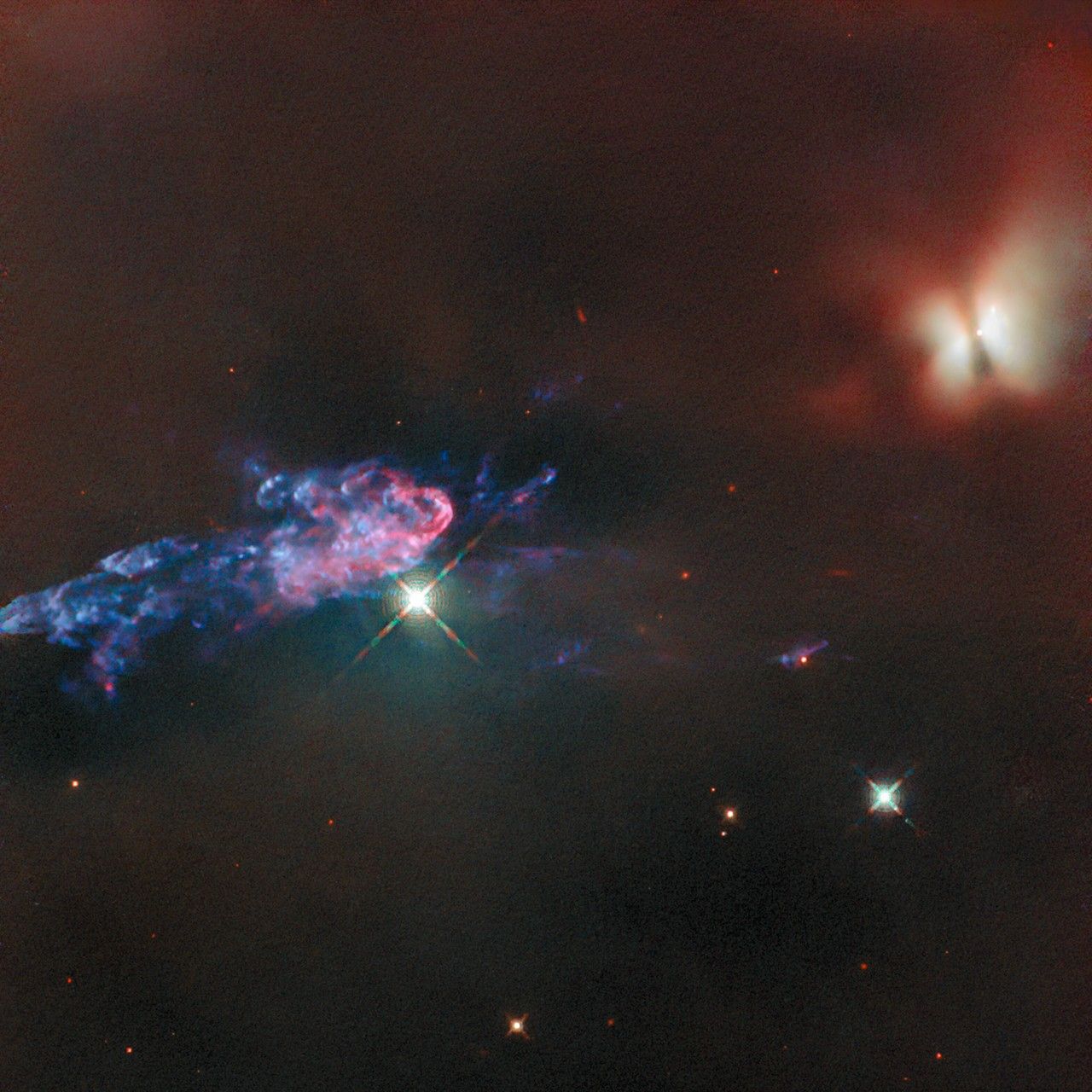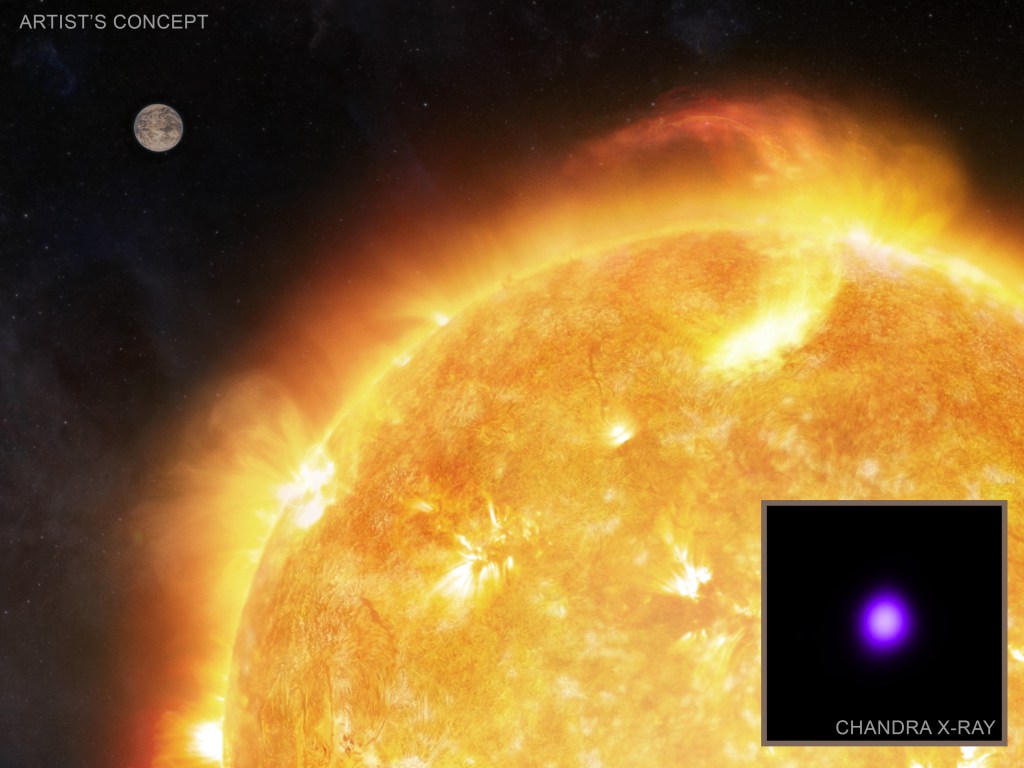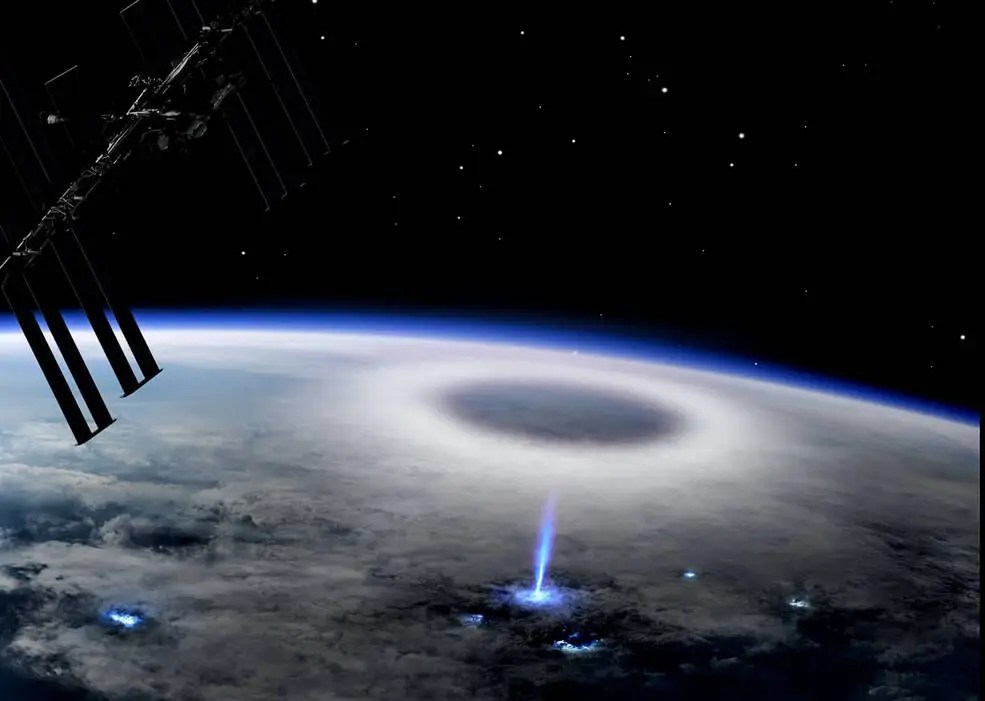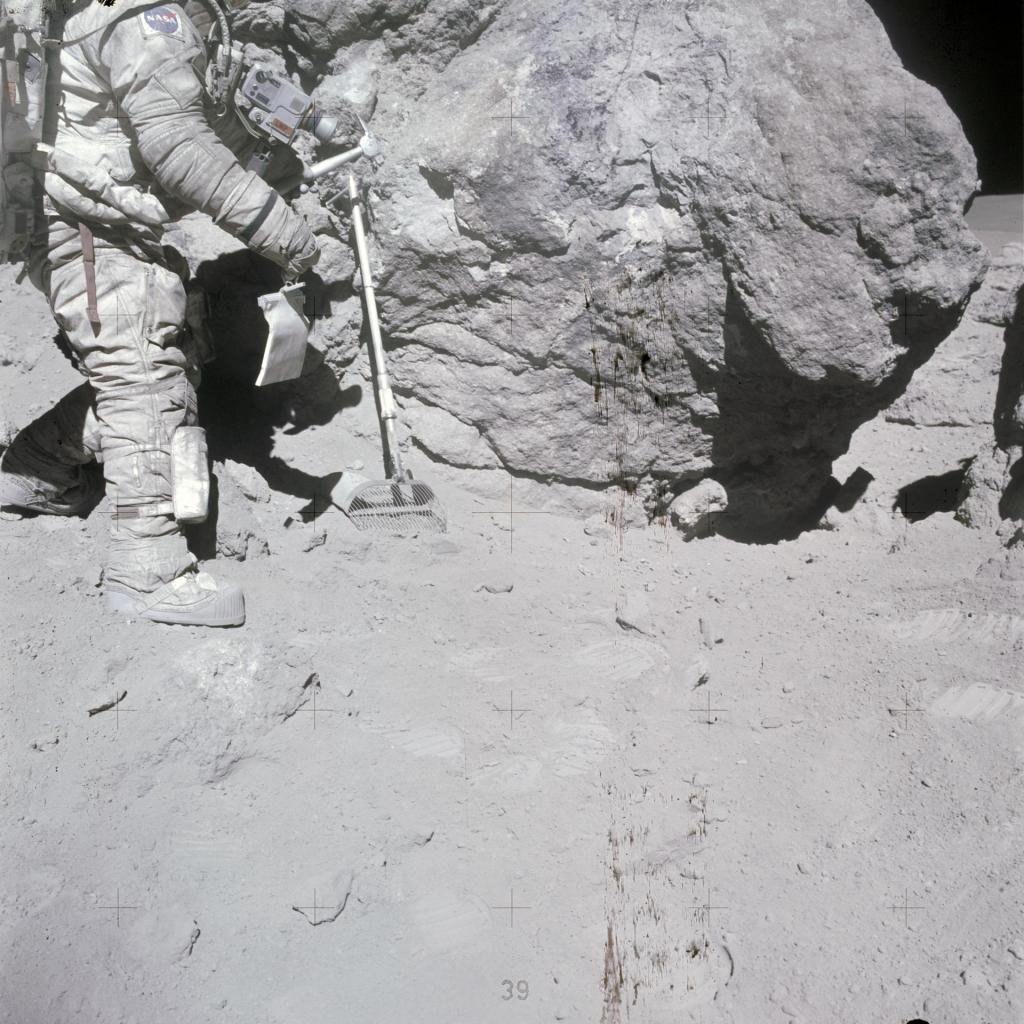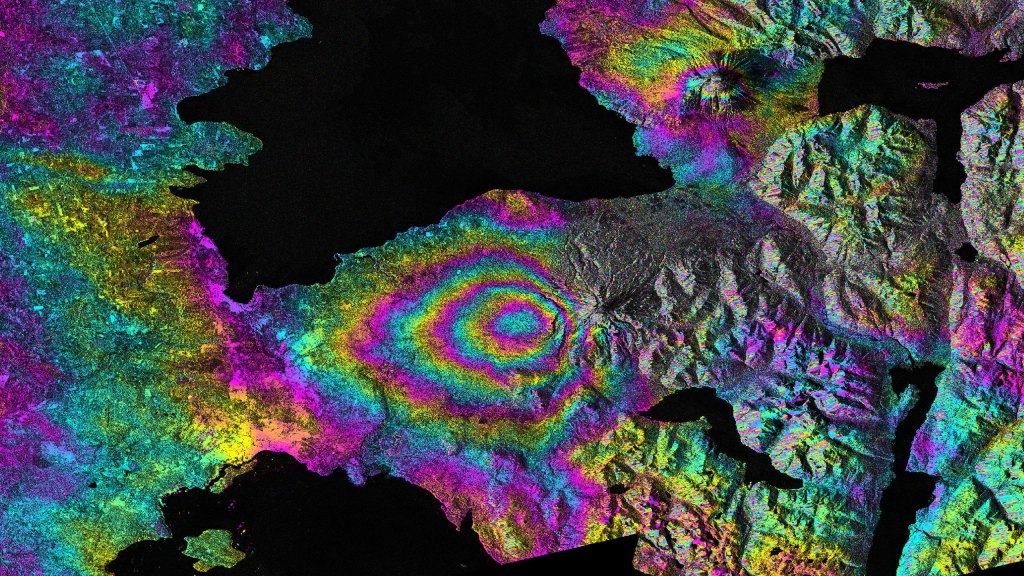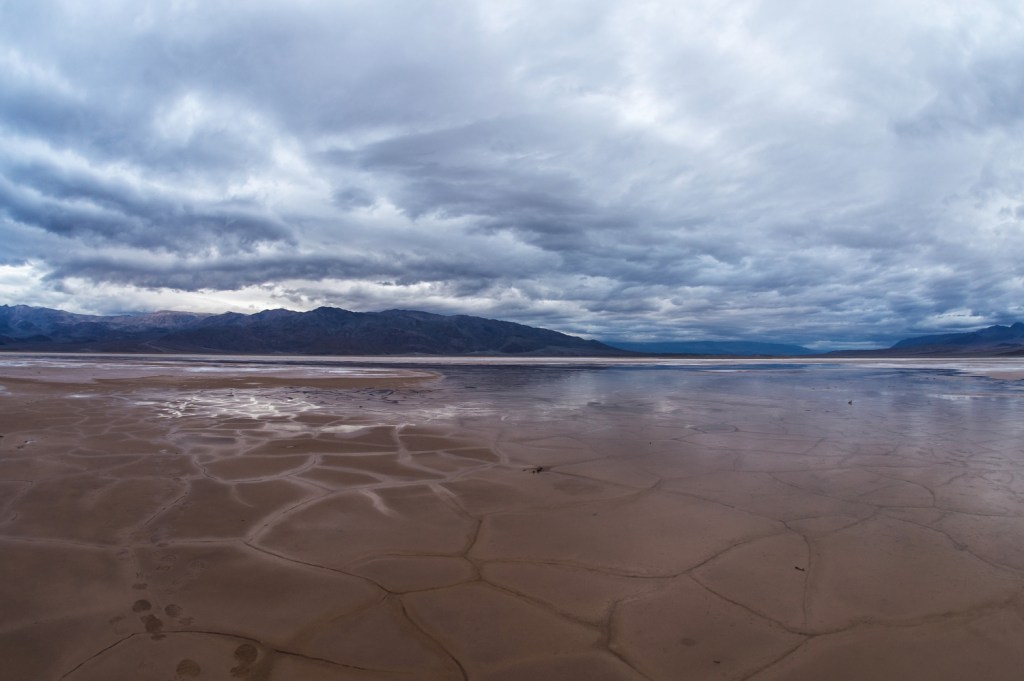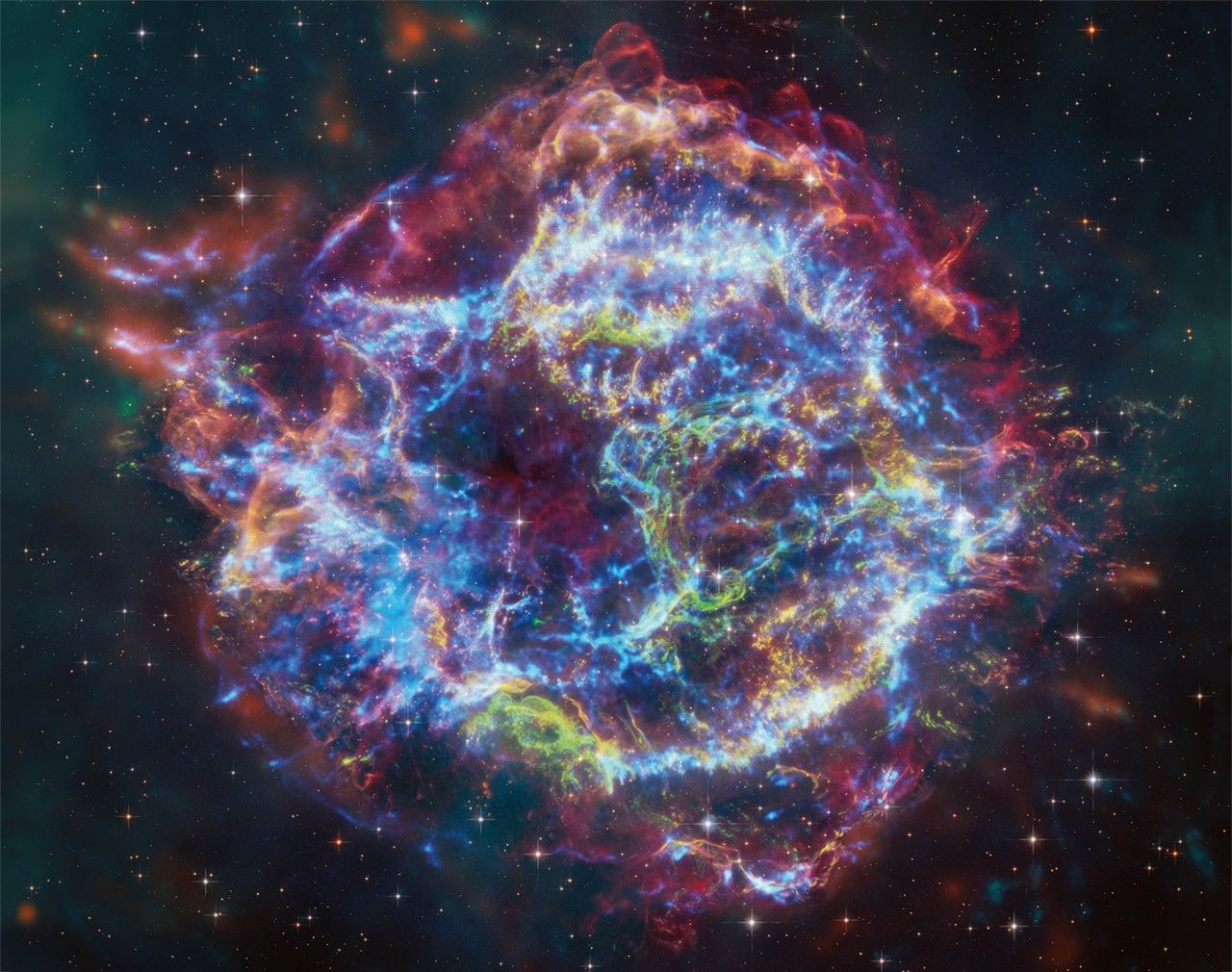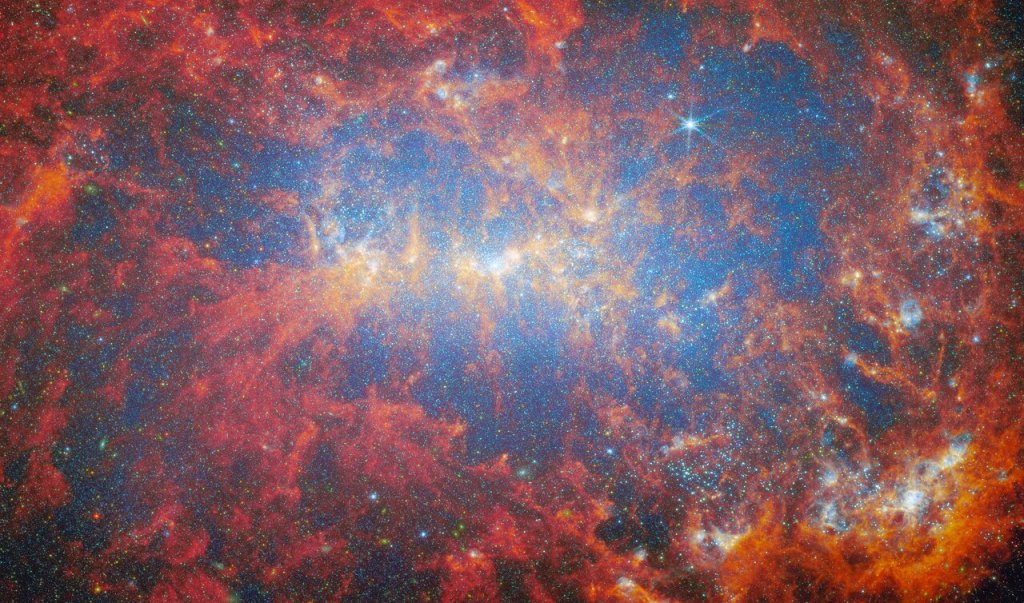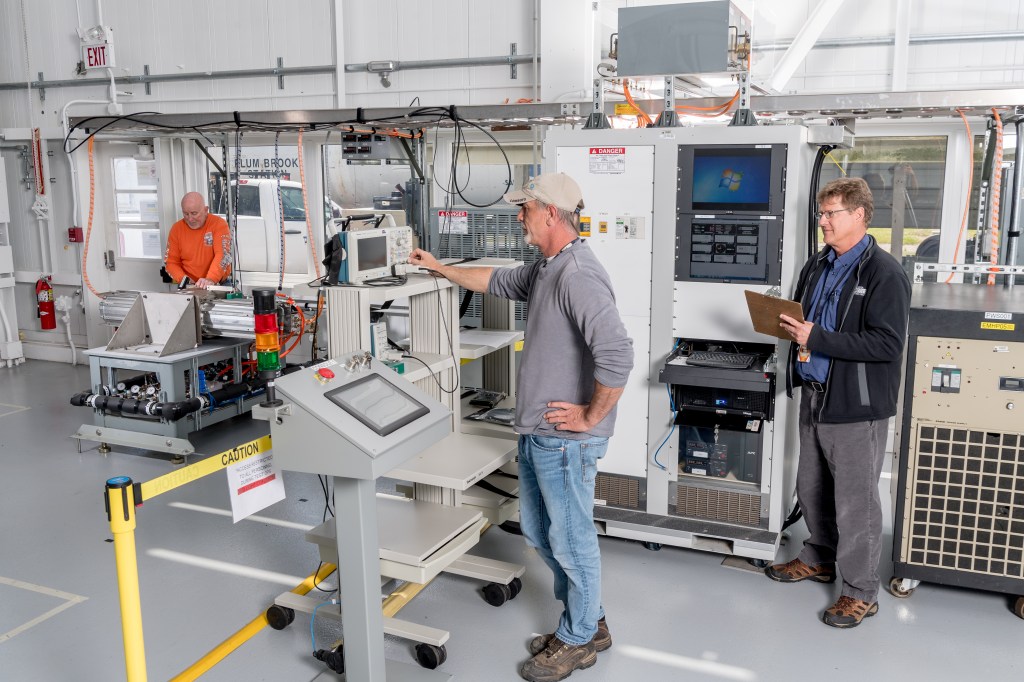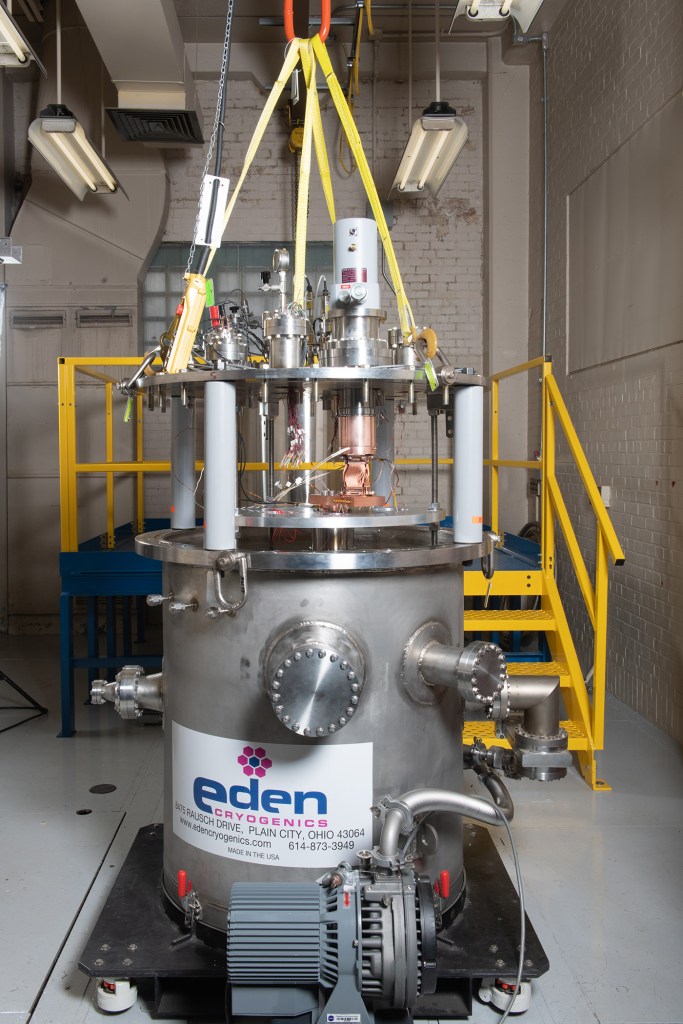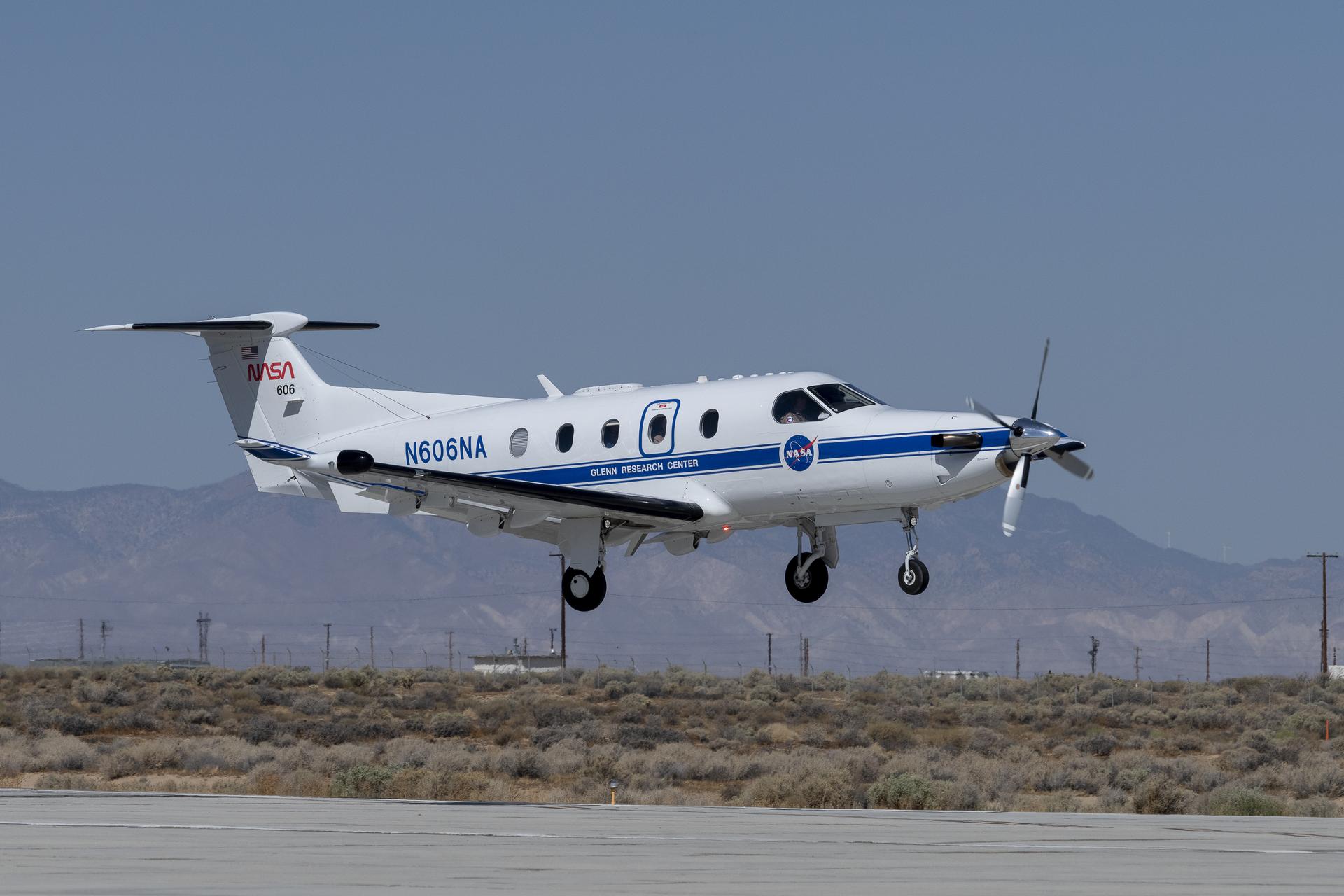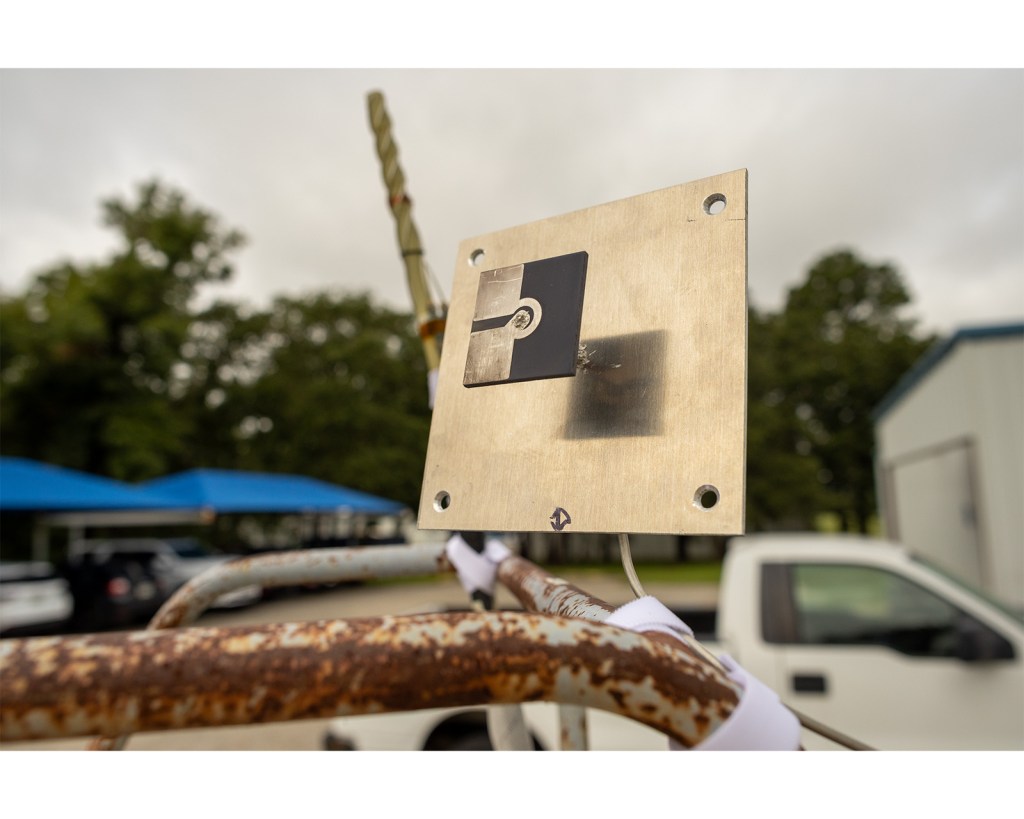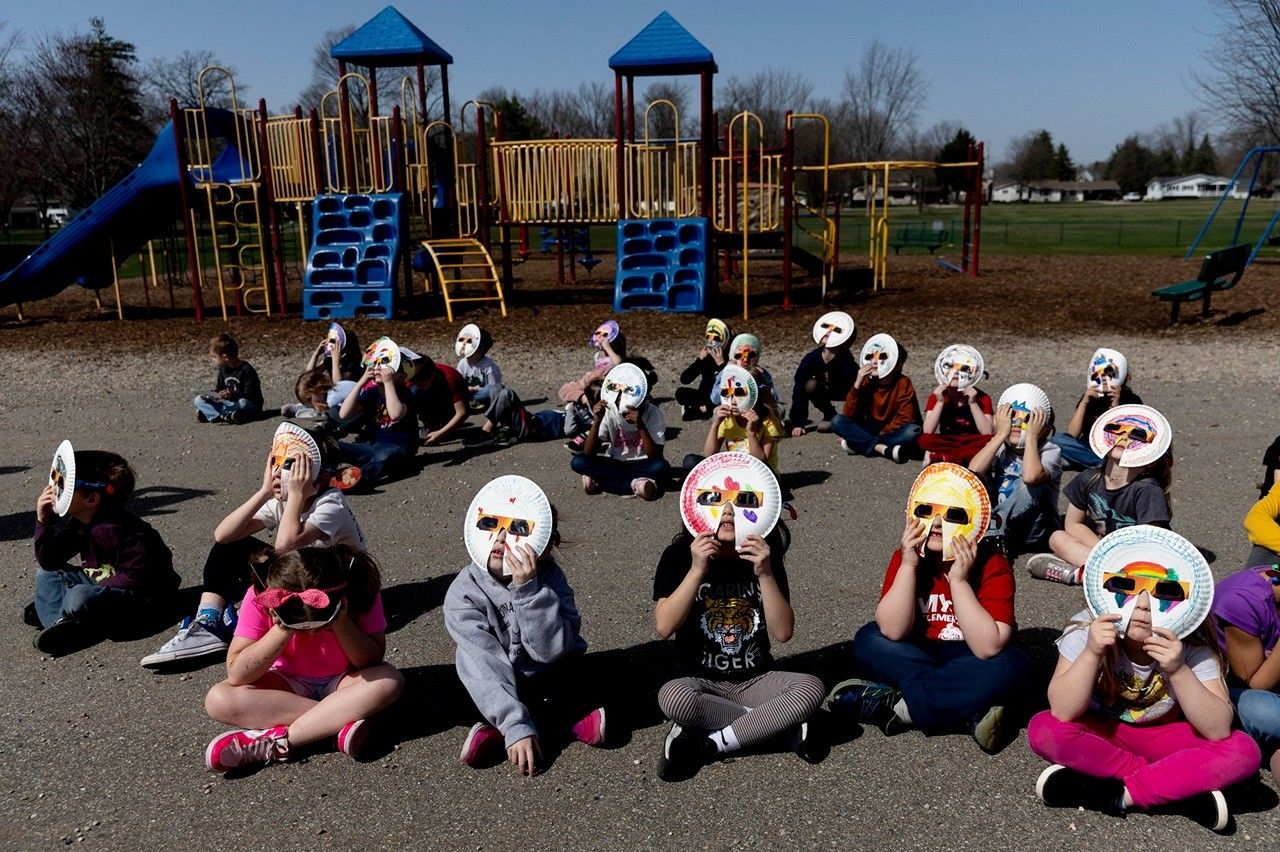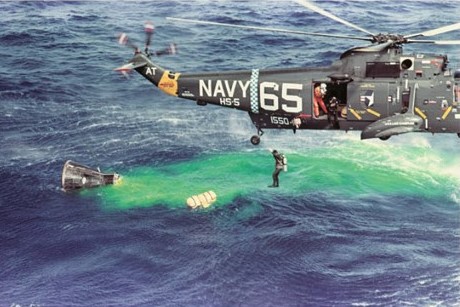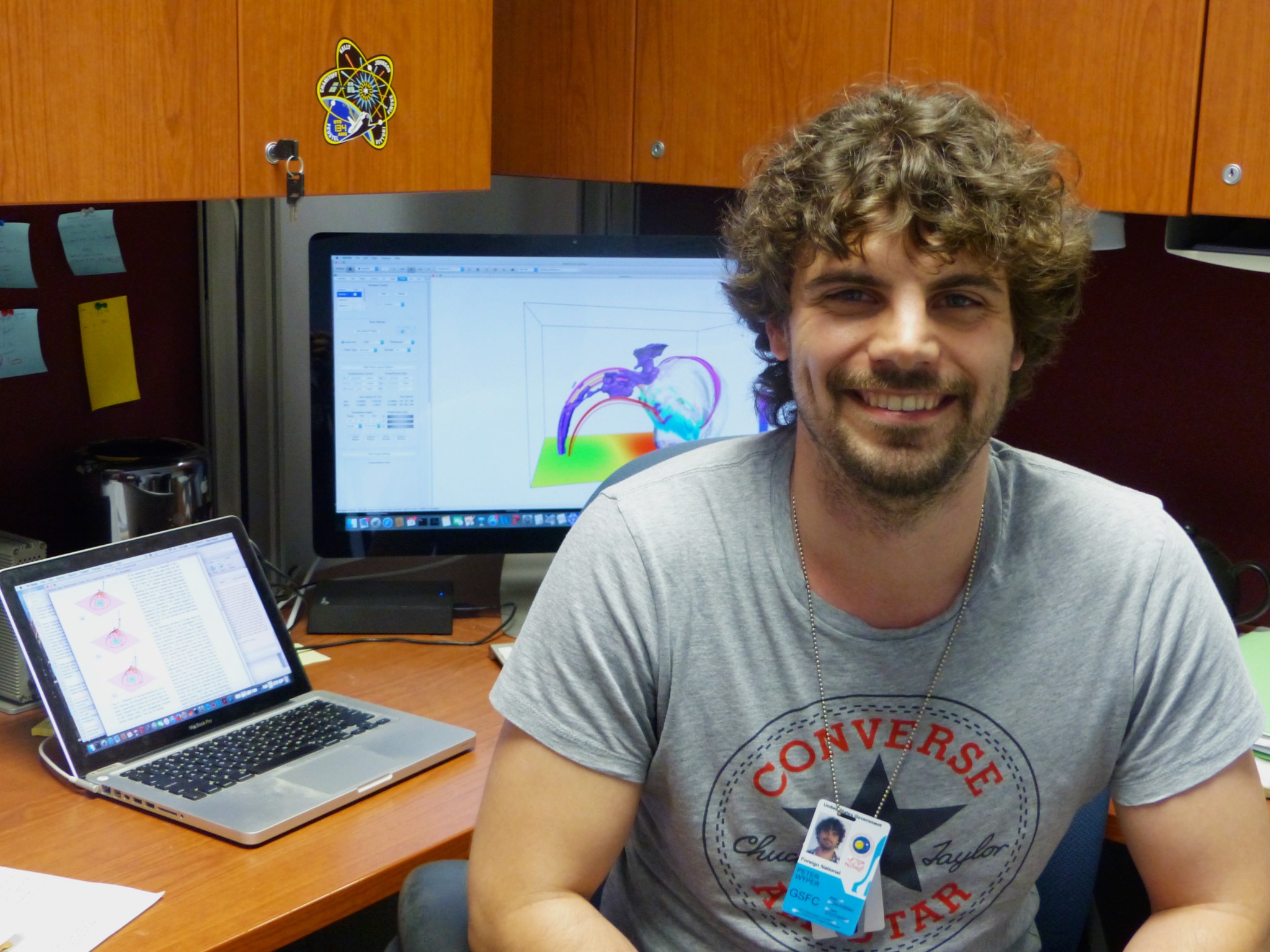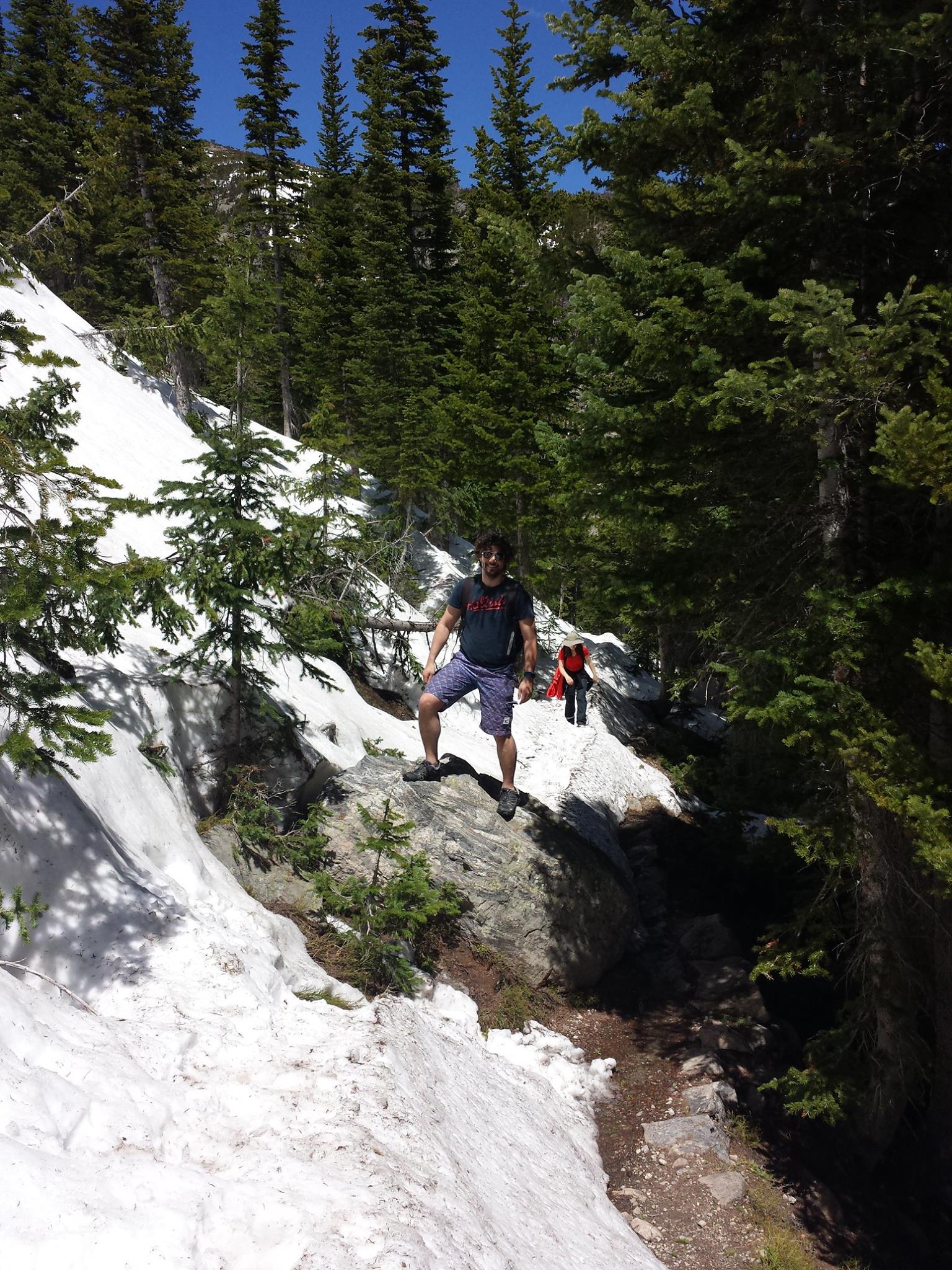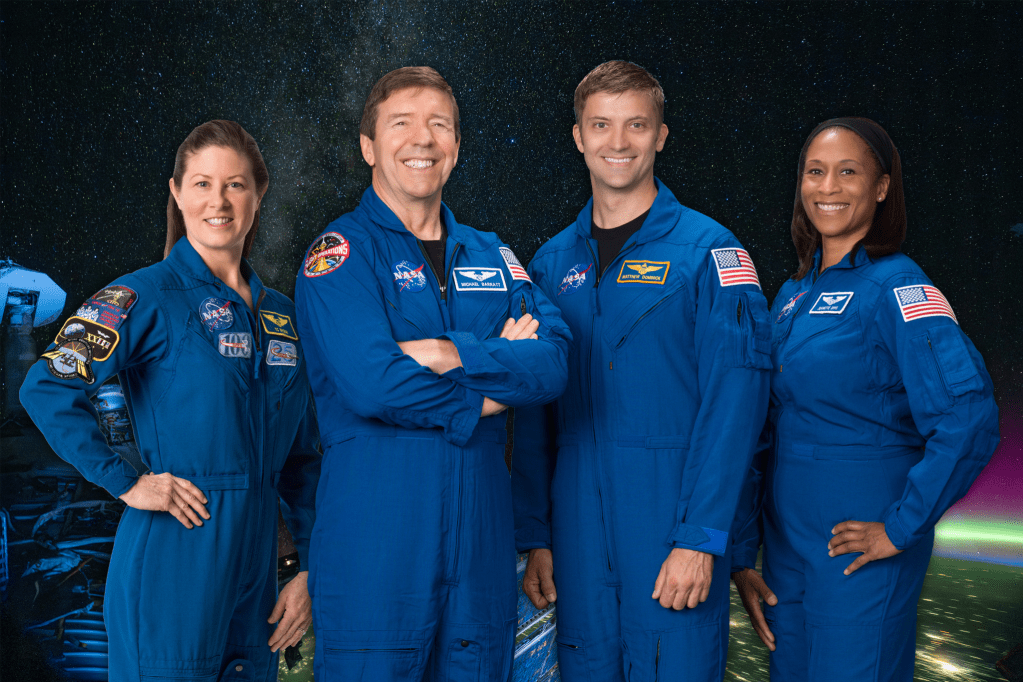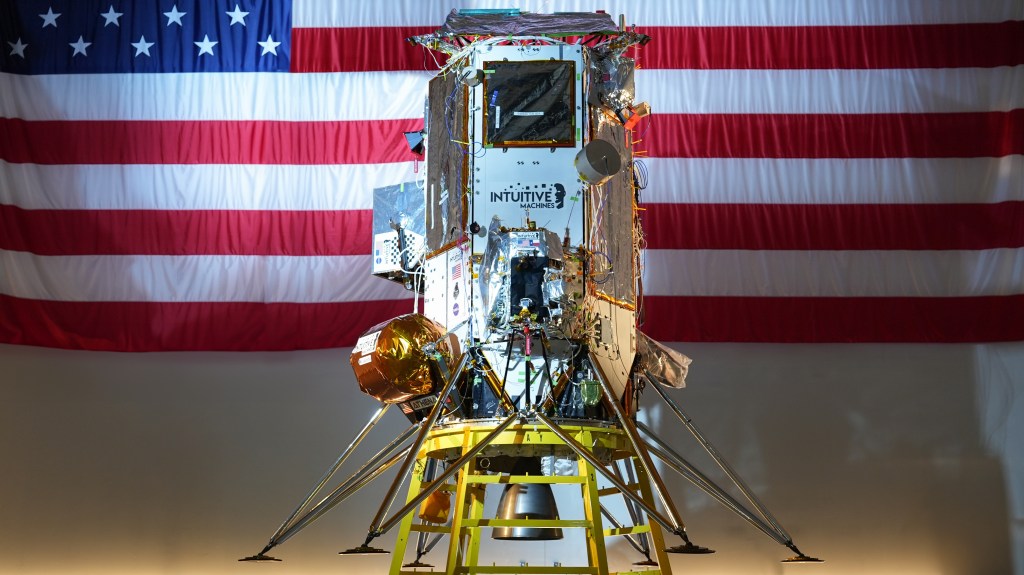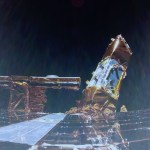Name: Peter Wyper
Title: Numerical Simulations Researcher
Formal Job Classification: NASA Postdoctoral Program Fellow
Organization: Code 674, Space Weather Laboratory
Solar atmospheric scientist and movie lover Peter F. Wyper makes numerical simulations to understand the solar atmosphere.
What is your role at NASA?
I am in the area of solar physics, and what I do is use numerical simulations—essentially big experiments done on a computer to try and understand the things we see in the solar atmosphere. NASA satellites see cool explosions and things, and it’s my job to try and simulate them and interpret them and understand them.
What is your typical day on the job like for you?
I wander in about 9:30 A.M. I make a big cup of tea, because I’m British, then I check on my simulations from the night before. I’ll check if any interesting papers have been submitted recently. And then, it varies after that, that’s the first hour, then I might be writing a paper or I might be writing a piece of code, debugging a code (I spend a lot of time debugging codes); anything at that point to start moving forward.
Do you use any cool tools, or instruments or specialized pieces of equipment to do your job?
Because a lot of my job, or all the work I do, involves simulations; I use quite a few visualization tools for them. Part of my day will be spent using visualization software where I will draw loads of field lines, or maybe clouds of dense things and less dense things, and fly around them to understand what’s going on. That’s probably the coolest thing I get to play with. I don’t mess around with hardware and satellites and that kind of stuff. That’s all a bit weird to me.
Why did you choose your profession?
It wasn’t really deliberate. I got here in a roundabout route, a little bit. I did maths at University and I had a quite charismatic, more than one, several charismatic lecturers who were in the area of solar physics. I did courses that they taught and that was the first time I saw it. I didn’t really have a plan after university. I thought, I don’t want to go into the corporate world, I know that. I’ll do a Ph.D. and I’ll try this research thing out. That went well, and then I kind of kept being lead down that road. I’m now here! I never thought I’d work at NASA one day.
Why did you come to work at Goddard and what makes you stay?
I never planned actually to come to Goddard. The recession brought me to Goddard. There were very few post-doc positions coming up two years ago in the UK. And those that were, were already set aside, so that made me have to think bigger. That was actually the best thing that could have happened for me. It made me get out of my comfort zone, think about moving outside the UK, think about trying to change a little bit, and it brought me here through the [post-doctoral] program, which was awesome, and I’m really enjoying being here. What made me stay has been learning a huge amount. People here are great and it’s where everything happens. There’s stuff going on, there’re actual rocket scientists on my corridor; which is cool. You can see them building things. I knew ultimately, I was going to end up back in the UK, so I’m going to be leaving by the end of the summer. It’s been a fantastic experience and it’s kept me in academia by coming here.
What is one thing you would tell somebody just starting their career at Goddard?
I guess it depends on what position they’re in. If they are coming in as a Post-Doc, or even as a Ph.D. student, they are in the right place; they are in one of the best institutions in the U.S. There are people interested in lots of different things just down the corridor. That’s the biggest difference I’ve found coming here. I use to work in my university’s maths department where there were maybe two or three academics in the same area of theory. Here you have people who are building satellites, and they’re involved in missions and have all these amazing observations that you can try to compare to and talk about. Although you can still get the same discussions with people at conferences, by being here and seeing these people at lunch time, you just get so much more access to that. That’s a good place to be. Also don’t be intimidated by the fact it’s NASA either. People outside here go “wow it’s NASA!” It’s cool, but people here are fairly normal. You’re going to know more than some people here, or you probably know more than you think you do. Don’t get me wrong, there are people here who know much more than me, but it was nice that I felt that I knew something and occasionally people come to me for advice on how things work, “you’ve studied this before right?” It’s a cool place, but you have to really want it, you have to be really passionate for it, because it’s hard. It’s really hard to survive given how hard it is to get money, and the opportunities aren’t there like they were 15-20 years ago. You just have to be brave, be ambitious and push yourself. If you’re willing to do that, people here will try their best to help you out, and you have a shot at it.
Who is the most influential person in your life?
I could be a bit soppy and say my wife. To do your Ph.D. is hard and then struggling through several years of Post-Doc without knowing what your next job is going to be, where it’s going to be, how you’re going to do it, if you’re going to be able to get it in time, doing all the job interviews, writing the proposals, all of that is really tough. It’s good to have somebody who has your back. I met my wife at university, and she’s been there for all of this. It’s pretty cool that she chose a job that is very transferable so that she could come with me. It enables her to still have a career whilst I do all this stuff. Probably the best person I know.
What do you usually do outside of work?
I do a lot of running. I enjoy the weather here. If I’m not running, I’m in the pub. If I’m not in the pub, I’m watching TV shows and films. I love films. I love watching films and going to cinemas. I go to the cinema once a month or every two weeks. Sunshine, beer and film.
What is your favorite movie?
Back to the Future basically defines me. I love rock music because of that film. I love 80s culture because of that film. I may have gotten into science because of that film. I’ve always wanted to be as cool as Marty McFly, but as clever as Doc Brown. That was my favorite film growing up and probably still is.
If you could be any planet, what would you be and why?
Jupiter. Aside from the Sun it is the center of attention and it can get angry and turbulent, but it can also cool look from a distance.
What is your “six-word memoir”?
Chill out and have a beer—probably what I try and go for. Try not to get stressed and take it easy.
Is there anything else you would like to say?
I am very grateful for having the chance to come here. The people that I work with now are awesome, but I think they probably took a chance with me because of an out-of-the-blue email, which then got me in touch with people I never met until my first day of work. A chance was taken there, so I’m really grateful I got to come out here. And this place is really cool!
By Kelly Ramos
NASA’s Goddard Space Flight Center, Greenbelt, Md.

Conversations With Goddard is a collection of Q&A profiles highlighting the breadth and depth of NASA’s Goddard Space Flight Center’s talented and diverse workforce. The Conversations have been published twice a month on average since May 2011. Read past editions on Goddard’s “Our People” webpage.

